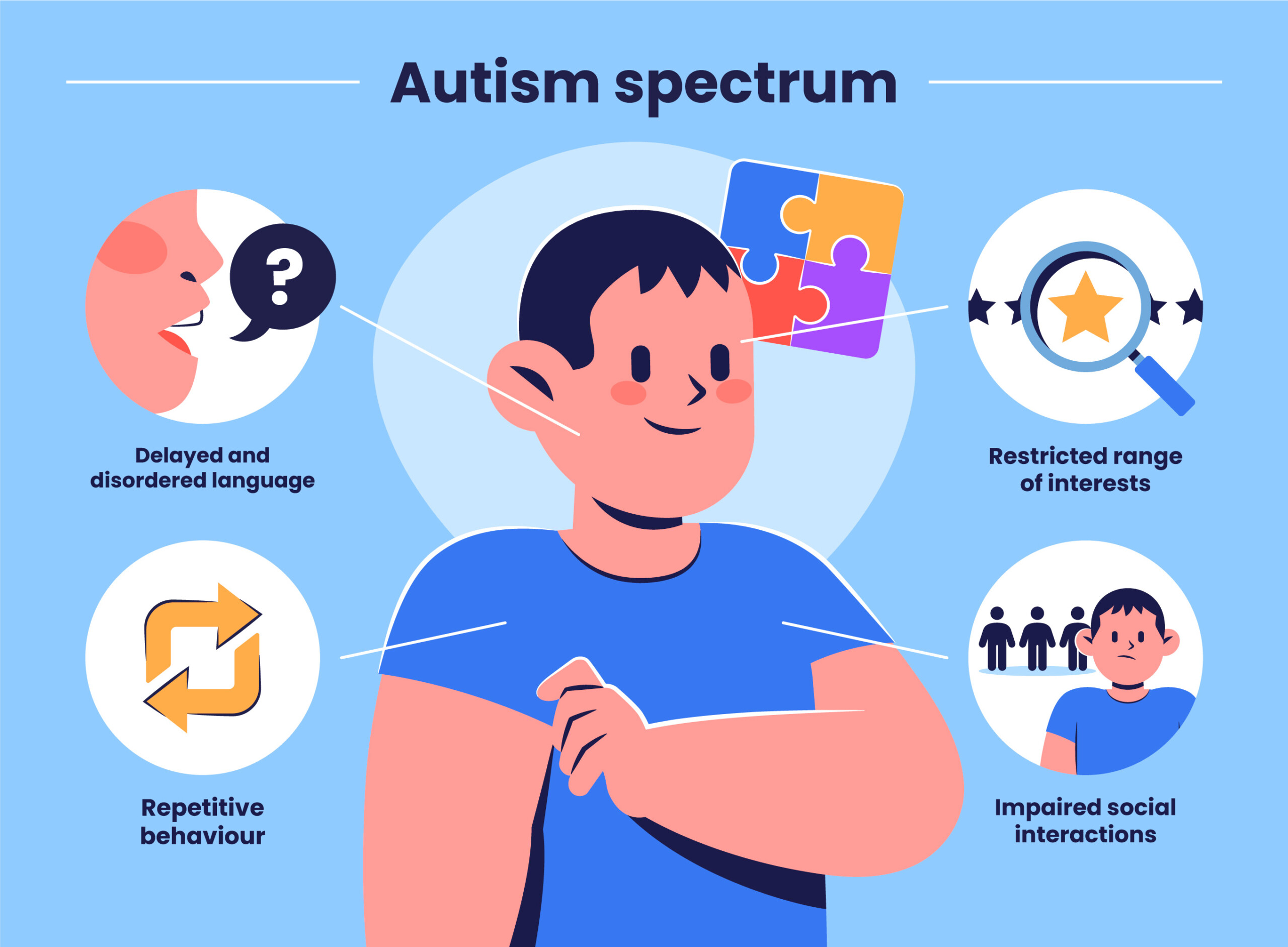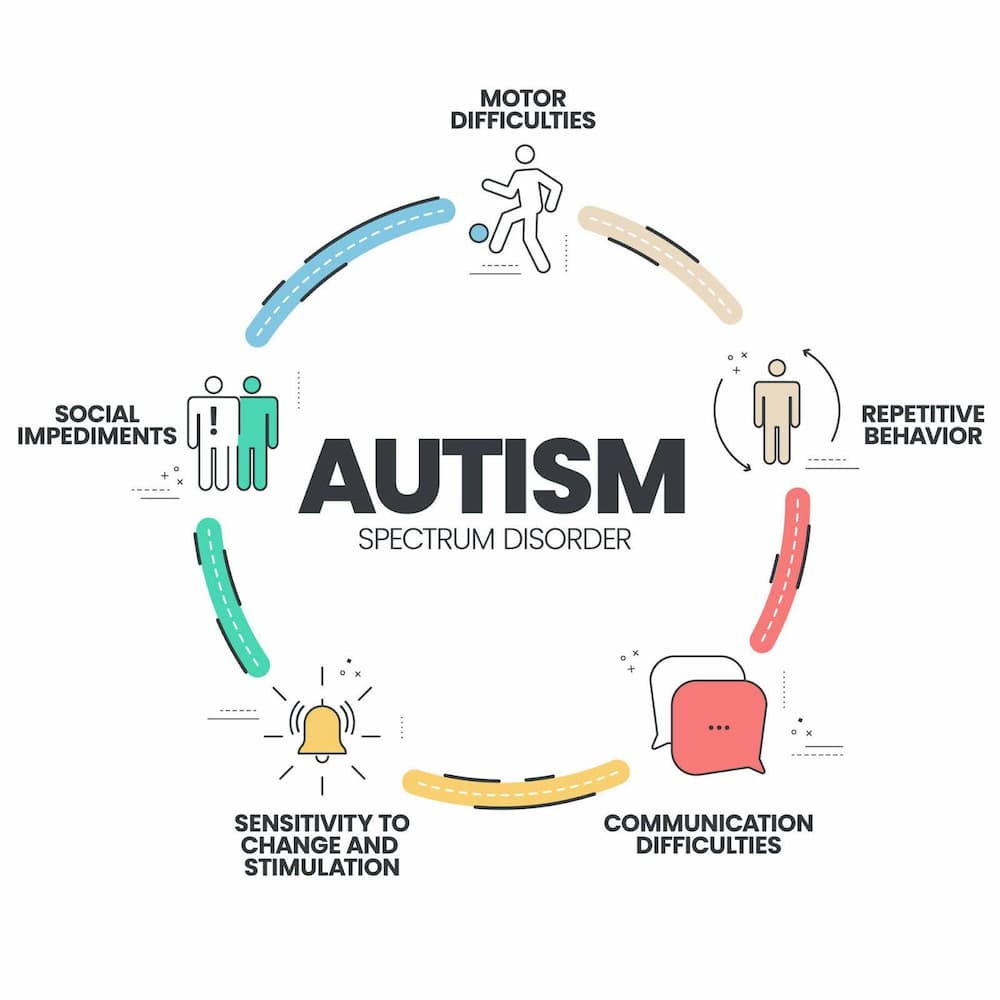From meltdowns to breakthroughs using Autism Behavioral Therapy
From meltdowns to breakthroughs using Autism Behavioral Therapy
Blog Article
Trick Indications and Signs to Recognize in Individuals With Behavioral Autism
When you encounter someone with behavior autism, identifying essential signs and signs is essential. Additionally, sensory level of sensitivities can lead to frustrating experiences.
Difficulties in Social Interactions
When you communicate with someone on the autism range, you may notice they have a hard time with social cues and communication. These challenges can make social communications feel frustrating for them. You may see them preventing eye contact or standing too close or also far during discussions, which can create misunderstandings. They could not pick up on body movement or facial expressions, making it harder for them to assess exactly how others are feeling.
When they do involve, they may chat regarding their rate of interests in fantastic detail without discovering if you're interested. Recognizing these challenges can aid you approach communications with compassion and perseverance, cultivating a more comfy setting for both of you.
Problem With Verbal and Non-Verbal Communication

Acknowledging these signs is necessary, as it helps you better assistance and engage with people on the autism spectrum. By understanding their communication difficulties, you can cultivate extra purposeful links and offer a more supportive environment.
Repetitive Actions and Routines
Communication challenges usually go along with various other indications of autism, such as repetitive behaviors and a strong choice for routines. You may discover that people with autism typically take part in specific, repetitive actions, like hand-flapping, shaking, or repeating expressions. These actions can offer convenience and a feeling of control in a frequently overwhelming world.
Routines are equally important; lots of individuals prosper when they comply with a structured schedule. You might discover that adjustments to these routines can cause substantial distress. As an example, if they have a daily routine of eating breakfast at a specific time or following a particular route to school, any type of disturbance can cause anxiousness.
Recognizing these patterns aids you comprehend their habits and give assistance. By accommodating their need for routine and permitting repetitive actions, you can create a much more comfy setting that reduces their obstacles.
Sensory Sensitivities

Usual Sensory Triggers
Sensory level of sensitivities can considerably influence day-to-day life for individuals with autism, as certain stimuli typically activate frustrating responses. Typical sensory triggers include loud sounds, intense lights, and strong smells. You may discover that sudden sounds, like alarm systems or alarms, trigger stress and anxiety or distress. Similarly, fluorescent lighting in stores can really feel uneasy and harsh. Appearances can likewise play a considerable function; harsh textiles or specific food structures might be unbearable for you. Furthermore, crowded locations can bewilder your detects, making it difficult to unwind or focus. Comprehending these triggers can assist you handle your setting much better. By knowing what impacts you, you can take actions to reduce pain and enhance your everyday experiences.
Behavior Feedbacks Discussed
Comprehending your behavioral actions to sensory level of sensitivities is necessary, as they frequently disclose exactly how you connect with the globe. You might notice that certain audios, lights, or appearances bewilder you, causing anxiety or discomfort. When confronted with these stimulations, you might withdraw, cover your ears, or perhaps respond strongly. These responses aren't just traits; they're your way of managing overstimulation. You may likewise find yourself seeking particular sensory experiences, like deep stress or peaceful settings, to help ground on your own. Identifying these patterns helps you understand your site needs far better and can guide how you interact them to others. By acknowledging your sensory level of sensitivities, you can function in the direction of producing a setting that feels much more comfortable and workable for you.
Coping Methods Summary
Identifying your sensory sensitivities is simply the initial step; currently it's time to discover coping approaches that can aid you handle those experiences efficiently. Begin by creating a sensory toolkit tailored to your requirements. Establishing a structured regimen can likewise supply predictability, lowering anxiety around sensory overload.
Limited Rate Of Interests and Emphasis
While many people establish a wide variety of interests, those with autism frequently show restricted interests and an intense focus on certain subjects. You could see that someone with autism can invest hours delving into their preferred topic, whether it's a particular kind of train, a particular flick, or a clinical idea. This intense emphasis isn't just a pastime; it can end up being a main component of their identification and social communications.
You might locate that conversations revolve around these passions, and they may have a hard time to involve in broader subjects. By recognizing and recognizing these limited passions, you can promote an encouraging atmosphere where they really feel valued and understood, allowing for even more significant connections and interactions.
Emotional Law Problems
Individuals with autism frequently encounter obstacles in psychological policy, which can be affected by their extreme concentrate on particular interests. You could observe that when an individual is deeply taken part in a recommended task, they can experience strong emotions, whether exhilaration or irritation. This intensity sometimes makes it hard for them to change equipments or manage their sensations when things don't go as planned.

Irregularity in Developmental Landmarks
When it comes to developmental landmarks, you'll notice that people with autism commonly reveal a broad variety of variability. You might see a kid succeed in language skills yet struggle with social interactions.
It's important to recognize that each person's journey is one-of-a-kind. Some might develop complex abilities early, just to deal with difficulties later on. Others could take longer to achieve basic landmarks but after that prosper in certain locations. Observing these patterns can aid you comprehend their strengths and needs much better.
Frequently Asked Concerns
Just How Is Autism Identified in Children and Grownups?
To detect autism in grownups and youngsters, specialists examine habits, communication skills, and social communications. If a private satisfies the standards for autism spectrum disorder., they usually use standard tests, meetings, and monitorings to figure out.
Exist Various Types of Autism Spectrum Disorders?
Yes, there are different types of autism spectrum disorders, consisting of Asperger's syndrome and pervasive developmental disorder-not otherwise defined. Each kind varies in extent and click over here attributes, so understanding these differences can assist you far better support people with autism.
What Treatments Are Effective for Individuals With Autism?
When taking into consideration effective therapies for individuals with autism, you'll locate alternatives like Applied Habits Evaluation, speech treatment, and job-related therapy. Each method can assist enhance communication, social skills, and daily working customized to private demands.
Can People With Autism Lead Independent Lives?
Yes, people with autism can lead independent lives. With the right support, abilities training, and sources, you can aid them develop self-sufficiency, manage everyday tasks, and flourish in different settings, promoting their self-reliance.
Exactly How Can Households Support Enjoyed Ones With Autism?
You can support your liked ones with autism by creating a structured setting, motivating their passions, practicing persistence, cultivating interaction, and advertising social abilities. Celebrate their achievements, regardless of how little, and construct an encouraging neighborhood.
Although lots of individuals on the autism range can understand and use language, they often face significant obstacles with both non-verbal and verbal communication. Acknowledging these indicators is vital, as it assists you better support and engage with individuals on the autism spectrum. You could see that individuals with autism typically engage in certain, repeated activities, like hand-flapping, rocking, or duplicating phrases.Sensory level of sensitivities can significantly affect everyday life for people with autism, as certain stimulations commonly cause frustrating responses.When it comes to developing landmarks, you'll see that individuals with autism typically show a wide variety of variability.
Report this page